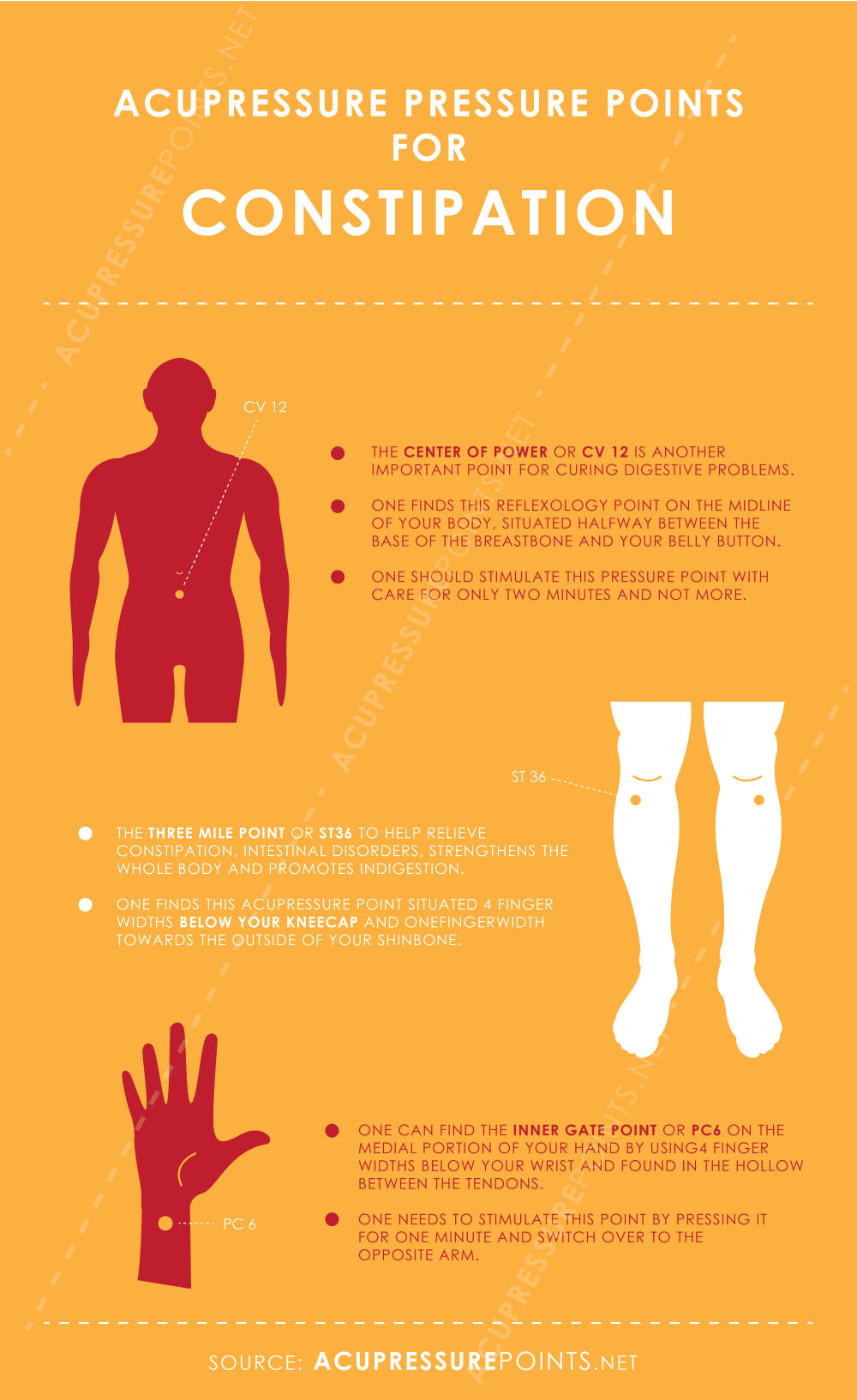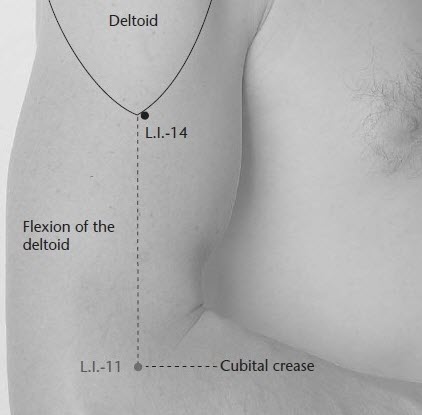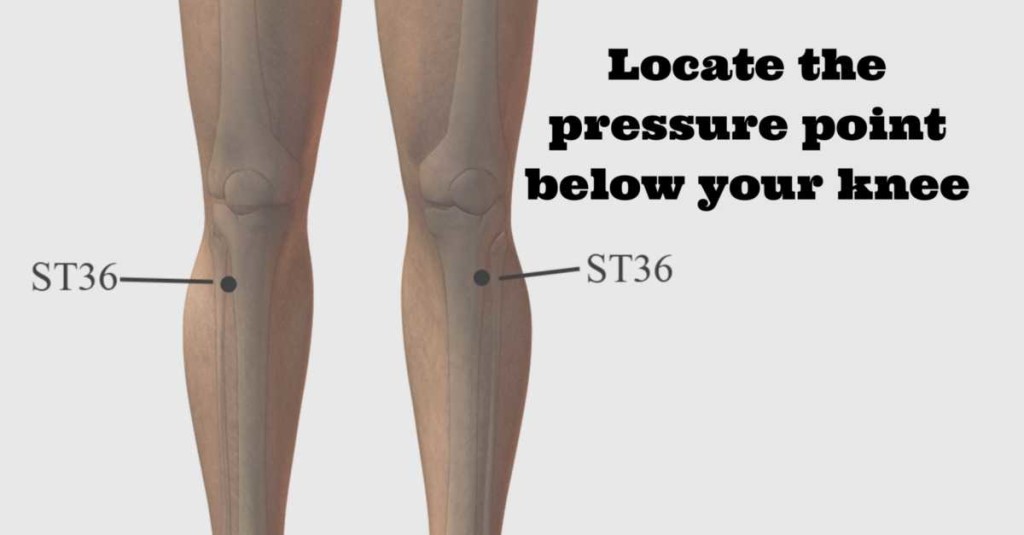Acupressure Points for Constipation Our Little Secret:
Many of us have experienced constipation at some point in our lives. However, it is not something that we like to talk about and is a little secret. Many people have constant constipation, which causes great pain. There are several natural ways to relieve constipation, and one of them is by using specific acupressure points.

Many people need to take regular medication to keep their bowels moving, and in many cases, constipation is caused by the foods they eat. While constipation is often characterized as missing a bowel movement less than three times a week, it has dissimilar meanings for diverse people.
Acupressure Points for Constipation:
Some refer to it as difficulty passing stool, while others associate it with irregular bowel movements. Others know it as Irritable Bowel Syndrome or the more familiar word diarrhea. Constipation can be found in both young and old, and one can use acupressure therapy as a productive way to get the bowels moving naturally.
Acupressure Points for Constipation Infographic:

How to Prevent Constipation:
There are some key factors one can do in combination with acupressure therapy to help prevent constipation, and they are:
- Drinking at least six to eight glasses of water a day is a good rule for staying hydrated when adding fiber to your diet
- Get enough fiber by eating foods from fruits, grains, and vegetables, as it is critical for a healthy bowel movement. Adding fiber gradually is essential, as it may cause a gassy or bloated feeling.
- Exercise regularly
- Add those veggies and make sandwiches with roasted vegetables, or opt for a salad instead of fries with your meal.
- Replace your white bread, white pasta, and white rice with grains
- Replace your Meat with bean dishes at least once or twice a week
The Best Acupressure Points for Constipation:
The following acupressure points for constipation can help alleviate your symptoms, and you do not need to use them all simultaneously. However, you can only use one or two of these pressure points when you have a free hand and are effective.
Joining the Valley or Large Intestine 4 (LI4)
Pregnant women should avoid joining the Valley or Large Intestine 4 pressure points, as they could cause premature contractions in the uterus. This acupressure point is located at the highest point on the muscle on the back of your hand, where the thumb and index fingers are brought close together.

Apply pressure to both hands for one to two minutes while taking deep breaths. This helps with relief from constipation, toothaches, arthritis, labor pain, headaches, eye problems, allergies, and chronic pain.
The Crooked Pond or Large Intestine 11 (LI11)
One can apply pressure to the Crooked Pond or LI11, a potent trigger point located on the outer side of the elbow crease, for quick relief from constipation. Firm pressure is maintained for one minute while breathing deeply.

Switch your hands and stimulate the same point on the other arm. This helps reduce fever, indigestion, skin diseases, heat stroke, and constipation.
Center of Power or the Conception Vessel 12 (CV12)
The Center of Power, or CV 12, is another vital point for curing digestive problems. One finds this reflexology point on the midline of your body, situated halfway between the base of the breastbone and your belly button. One should stimulate this pressure point with care for only two minutes and not more.

One needs to apply pressure to this point on an empty stomach, and people who are suffering from cancer, heart disease, or hypertension should avoid this acupressure point. It helps ease abdominal spasms, indigestion, emotional stress, jaundice, vomiting, insomnia, heartburn, and constipation.
The Sea of Qi or Conception Vessel 6 (CV6)
One can locate the Sea of Qi points three finger-widths below your belly button. Here, one needs to stimulate this pressure point using one’s fingertips. Do not press more than one inch deep; you will feel a firm object when pressing. Maintain this pressure for only 30 seconds while breathing deeply, and best to close your eyes. This Acupoint is excellent for relieving:
- Pain in the abdomen
- Constipation
- Gas
- Hernia treatment
- Irregular menstruation
- Fatigue
- Digestive disorders
- And impotence in men
The Three Mile Point or Stomach 36 (ST36)
Another beneficial point is the Three Mile Point, or ST36, which helps relieve constipation and intestinal disorders, strengthens the whole body, and promotes indigestion. This acupressure point is located four finger widths below your kneecap and one finger width outward from the outside of your shinbone. When applying pressure to the correct spot, you will feel some flexing of your muscles as you move your foot up and down. Here, you must apply pressure by using your palms and rubbing briskly for one minute on both legs.

This point is helpful as it helps with the following:
- Pre-Menstrual Stress
- Nervousness
- Insomnia
- Strengthens the whole body
- Relieves intestinal disorders
- Aids digestion
- Constipation
The Inner Gate Point or Pericardium 6 (PC6):

One can find the inner gate point or PC6 on the medial portion of your hand by using four finger widths below your wrist, which is in the hollow between the tendons. One must stimulate this point by pressing it for one minute and switching to the opposite arm. This pressure point is also used to treat motion sickness, nausea, headaches, upset stomach, asthma, chest tightness, angina, and carpal tunnel syndrome.
Use these acupressure Points for Constipation and Live Healthy:
By using these acupressure points for constipation relief and adopting healthy eating habits, along with regular exercise, relieving constipation will go a long way. It may help to rid your body of the need for medicines and laxatives, allowing your bowels to move in a healthy, natural way.
Home Remedies for Constipation
What causes constipation? This is an interesting question, as most people suffer from constipation at some point in their lives. To answer the question, it is when you do not have frequent bowel movements that the feces become complex and difficult to pass. Sometimes, this can cause bleeding or a sensation of feeling full.
In some cases, constipation can alternate with diarrhea, followed by abdominal cramps. In severe cases, it can lead to rectal problems and hemorrhoids. The colon’s function varies from one person to another. You can have a bowel movement three times a day to twice a week, and it is normal as long as the stool passes through the system.
There are different reasons you can suffer from constipation. The first is the lack of fiber—you need to get 30 grams per day. Another reason is that you are not getting enough fluids. Further, stress, medication, digestive disease, and colon cancer can also play a role.
So, if you want to prevent living this painful experience, make sure to read on.
Which Foods Cause Constipation
As mentioned earlier, to prevent constipation, it is essential to consume your daily fiber and fluids. However, certain foods can cause constipation. The best course of action is to avoid eating them if you suffer from the condition regularly.
- Unripe Bananas— While eating a ripe banana prevents constipation, eating an unripe one causes the opposite effect. The problem is that the fruit contains starch and is harder for the body to digest. The resistant starch converts to natural sugar during the ripening process, making it easier to take in. Further, it contains tannins that reduce the speed at which food moves through your gut.
- Alcohol – who would have thought it could cause an irregular bowel movement? When consuming large amounts of it, the alcohol increases the fluids you lose through urinating, and you become dehydrated. Losing too much water increases the risk of your suffering from constipation. The effects vary from one person to another, as some people get diarrhea.
- Gluten – the nutrients found in grains, barley, rye, and more. Some people are sensitive to gluten-containing foods as their immune system attacks their gut, and they must follow a gluten-free diet. If you find that gluten irritates your bowels, visit your doctor to check if you may have celiac disease.
- Processed Grains—White bread, rice, and pasta are examples of processed grains. What happens if the bran and germ parts are removed during the process? The fibers found in the bran offer what you need to prevent constipation. Reduce your intake of processed grains and gradually replace them with whole grains.
- Dairy products are another common culprit that can cause constipation for some people. Recent studies show that kids aged one to twelve suffer from chronic constipation when they drink a lot of cow’s milk. Once you replace the milk with soymilk, constipation
- Red Meat – The Meat contains little fiber, reducing your daily intake of fiber. Further, beef comprises more fat and takes longer for your body to digest.
Which Foods Cause Constipation in Babies
If your child is on formula and eating solids, they should have a regular bowel movement once a day. However, if your babies are breastfed, bowel movements can vary from once a day to once a week. What causes constipation in babies? The chance is that your baby is on formula, and something in it is causing them to become constipated.
Babies who breastfeed get a perfect balance of protein and fat, so their stools are softer even when they have not had one for days. You can try switching to a different brand to see if it makes a difference. Another cause is when they start eating solid foods. Rice cereal, being low in fiber, can cause constipation.
One more reason is that when you start weaning them off breast milk, it leads to dehydration. As with adults, infants need to consume the correct amount of fluids and avoid overeating processed grains, red Meat, dairy products, and gluten. To help relieve the problem, you can add prune, apple, and pear juice to their diet.
Foods to Avoid:
- Too much rice
- Bananas
- Cooked carrots
Frequently Asked Questions About Constipation
- Can constipation cause back pain?
If you are suffering from constipation and have lower back pain, the two can go hand-in-hand. However, if you have a spinal cord injury or irritable bowel syndrome, it is best to have it checked out.
- Can constipation cause fever?
Constipation cannot cause fever in normal circumstances, but the reason for getting it can. Some underlying causes of constipation are bacterial, parasitic, and viral infections.
- Can constipation cause headaches?
When you experience a straining bowel movement, it can lead to a headache. Further, not eating correctly and low blood sugar also lead to headaches. If you suffer from both simultaneously, it is best to have it checked. Other conditions may cause the problem.
- Does constipation cause heartburn?
Heartburn is a type of acid reflux known as gastroesophageal reflux disease (GERD). When you are on medication to treat the problem, it could cause constipation. However, it does not cause heartburn.
Does Constipation Cause Weight Gain
Not having regular bowel movements can lead to belly fat, love handles, and saggy skin. Constipation can lead to inflammation and the accumulation of toxins in your system, which in turn can affect weight loss in various ways.
- Garbage Makes Toxic –the waste materials are reabsorbed into the body and lead to toxic buildup if you do not have a bowel movement.
- Bacteria Overgrowth – when you strain to push out poop, bowel pockets develop in the colon. The reduced muscle contraction in the walls causes a food buildup that rots. This buildup allows the growth of pathogens that produce toxins, leading to inflammation in the gut.
- Leaky Gut & Inflammation: When the intestinal lining becomes leaky, food, toxins, and undigested proteins pass through into the bloodstream. In turn, your immune system cranks up inflammation, which affects the health of organs in the body. This leads to insulin resistance and an increased risk of obesity.
- Blood Sugar Imbalance—If you have inflammation, it blocks the insulin receptors and becomes resistant to insulin. This makes it challenging to convert calories into energy and accumulate fat. Common signs are weight gain and belly fat.
- Thyroid Health—The problem is often associated with constipation, which can cause inflammation in the body when hormones, such as estrogen, are not properly cleared. The levels of estrogen rise and decrease the thyroid hormone in the body. For your thyroid to be healthy, you need a healthy gut, which can lead to a slow metabolism, constipation, and weight gain.
When is Constipation Dangerous
Constipation is an uncomfortable and short-term problem that can be resolved at home. However, it can become dangerous when the feces become hard and lodge in your rectum. It can lead to bleeding and obstruct the bowel. If you experience the following, you need to get immediate help:
- You have unbearable abdominal pain, and it can be a more significant issue, such as your appendix or the bowel being obstructed.
- When you start vomiting due to constipation, it is a sign of fecal impaction, as it blocks the colon and causes vomiting. It would be best to seek medical attention immediately.
- Your stomach is bloated and painful for more than a couple of days.
- When you notice blood in your stool, something is causing the rectal bleeding. Another notable sign is if your feces are maroon and tarry in color.
- You remain constipated for longer than two weeks.
Final Thoughts
It is essential to monitor your constipation, as it may be a symptom of a more serious condition. However, following a healthy diet and eliminating certain foods can help alleviate the problem. Be sure to drink plenty of fluids to prevent dehydration and engage in regular exercise. If you continue to experience the problem, visit your doctor and have it checked out.